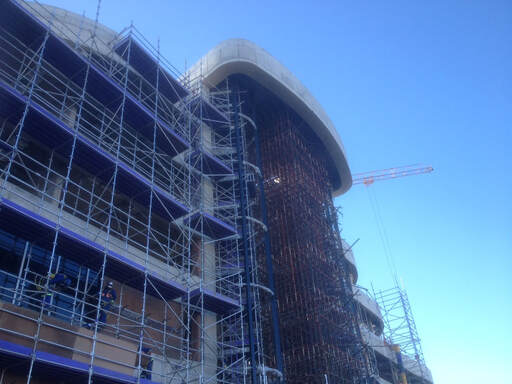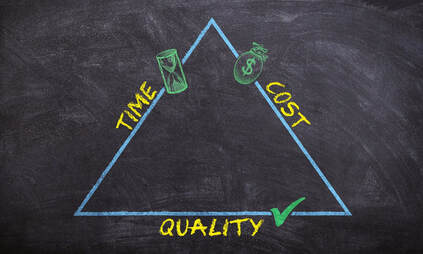"There are many different stakeholders involved with every construction project." If you want your construction project to go well, you can’t do without leveraging all your resources. And in turn, you can’t do that without your stakeholders. So, it’s crucial to understand the importance of stakeholder management in project success. Defining stakeholders in construction projectsIn construction projects, stakeholders encompass a diverse group, including owners, investors, local communities, regulatory bodies, designers and contractors. Moreover, each party holds distinct interests and wields potential influence over project outcomes. So, identifying these stakeholders early is vital, guiding project decisions and ensuring alignment. Additionally, understanding their roles, needs, and concerns helps prioritize actions for successful collaboration. Finally, by defining and involving stakeholders effectively and acknowledging the importance of stakeholder management, construction projects gain a solid foundation for success! "You need to always keep a careful eye on the needs and demands of key participants!" Recognizing the impact of stakeholders on project successIn the realm of excellent construction project management, recognizing the importance of stakeholder management is paramount. Stakeholders, ranging from owners and investors to regulatory bodies and local communities, possess the potential to shape project success significantly. So, their input and influence can affect timelines, budgets, and overall outcomes. Moreover, neglecting their needs may lead to costly delays or even project derailment. So, by acknowledging this impact, project managers can strategize effectively, engaging them in a way that aligns goals and minimizes conflicts. Create a comprehensive stakeholder list for your construction projectCrafting a comprehensive stakeholder list in construction projects is a fundamental step toward success. So, identifying all potential stakeholders early on lays the groundwork for effective engagement. Moreover, this list should encompass a wide spectrum, ranging from project owners and investors to local communities and regulatory authorities. Ensuring inclusivity guarantees that no influential party is overlooked! Methods such as surveys, interviews, and stakeholder mapping assist in compiling an exhaustive list. So, by meticulously identifying stakeholders, project managers can tailor their strategies, proactively addressing diverse interests and minimizing risks. Prioritizing stakeholders and their needsPrioritizing stakeholders and their needs is a critical facet of effective project management. So, categorizing stakeholders based on their influence and interest helps allocate resources efficiently. Moreover, balancing conflicting needs through careful consideration ensures project alignment. And identifying key stakeholders and addressing their concerns builds stronger relationships and fosters collaboration. Finally, acknowledging the significance of different stakeholders' contributions avoids potential roadblocks. "With the right support, you’ll maximize the value you get out of your resources!" Effective communication is essential for construction project successFor effective management, just acknowledging the importance of stakeholder management is not enough. Effective communication strategies hold immense significance! Clear and transparent communication bridges understanding gaps among stakeholders, fostering smoother collaboration. This allows you to, for example, properly communicate things such as budgeting and cost management. Furthermore, tailoring communication methods to their preferences through meetings, reports, or presentations enhances engagement. And ensuring that information flows seamlessly helps prevent misunderstandings and minimizes conflicts. Finally, regular updates and progress reports maintain their confidence. And addressing concerns promptly and conveying changes in a timely manner nurtures positive relationships! A well-structured communication approach is a cornerstone of successful management, facilitating alignment and driving success. Successful construction demands good communication Build strong relationships with key stakeholders on your projectCultivating robust relationships with key stakeholders emerges is a pivotal strategy. After all, developing trust and rapport with these influential parties is essential for success. So, by actively addressing their concerns and valuing their input, a sense of collaboration and partnership is fostered. Such strong relationships enhance communication channels, enabling a smoother flow of information. These positive connections can lead to valuable insights and potential solutions to challenges that may arise. Managing stakeholder expectationsEffectively managing stakeholder expectations is a cornerstone of successful project execution. Firstly, setting realistic goals and defining the project scope helps align everyone's understanding. So, consider using tools such as estimation software to make this easier. Furthermore, disruptions are minimized by addressing potential concerns and clarifying uncertainties early on. And adjustments to expectations, if needed, can be discussed collaboratively, maintaining satisfaction. So, when stakeholders feel their needs and expectations are acknowledged and met, a smoother journey is assured, reducing the chances of conflicts and enhancing overall work effectiveness. "Always have the latest data on all the developments at your fingertips!" Dealing with conflict and resistance on construction projectsNavigating conflict and resistance is integral in the realm of management. So, addressing potential conflicts of interest among stakeholders and managing opposition with strategic approaches is crucial. Here, effective communication is once more key to understanding underlying concerns and finding common ground. And open dialogue helps in defusing tensions and mitigating potential disruptions! Embracing a problem-solving mindset and seeking compromise also fosters collaboration and prevents impasses. Moreover, proactively addressing resistance can lead to innovative solutions and improved relationships. Stakeholder engagement throughout the project lifecycleMaintaining stakeholder engagement throughout the project lifecycle is pivotal for success. So, involving them from planning to completion ensures alignment and feedback incorporation. Moreover, regular interactions and updates keep parties informed and prevent misunderstandings. And adjusting your engagement strategy as the project evolves accommodates changing needs. Their input also aids in identifying potential risks and opportunities at every stage! So, collaborative decision-making fosters a sense of ownership and commitment. construction project meetings with your client Monitoring and feedback mechanismsImplementing robust monitoring and feedback mechanisms is another thing vital for management success. Regularly assessing progress and gathering feedback provide insights into stakeholder satisfaction and potential improvements! These mechanisms also help identify deviations from the plan and promptly take corrective actions. So, by continuously evaluating performance, managers can make informed decisions to maintain alignment with expectations. Tools like progress reports and surveys assist in gauging sentiment and capturing valuable suggestions! Moreover, utilizing this information aids in adapting strategies and enhancing project outcomes. So, effective monitoring and feedback mechanisms serve as proactive measures to address issues, ensuring that projects stay on track and stakeholders remain engaged and content throughout them. The long-term benefits of effective stakeholder managementEffective stakeholder management in projects yields substantial long-term advantages. Strong relationships fostered through open communication lead to future collaborations and opportunities. Engaged stakeholders can also become advocates, directing to new projects and partners. And positive connections established can contribute to a project's reputation and credibility in the industry. Moreover, satisfied stakeholders might provide valuable insights and expertise for future endeavors. Finally, well-managed stakeholder networks enhance a manager's professional network, creating a platform for continued growth and learning! So, over time, investing in stakeholder management bolsters a company's standing, aiding in securing contracts and partnerships. In essence, the benefits of skillful management extend far beyond the current work’s completion, positioning organizations for ongoing success. Why good relationships are important in construction Good Relationships are Important in ConstructionWith what we covered on the importance of stakeholder management in project success, it’s easy to understand why it’s so highly valued. It can make or break any construction, making things so much easier! So, make sure always to cherish and nurture such important relationships. What qualities does a good construction project manager require? AuthorJohn Mitchell is a management expert at müv | Trusted Florida Movers. With a wealth of experience in project coordination and stakeholder engagement, John has played a pivotal role in ensuring successful and seamless moving operations. And he loves to share the tips he's picked up through informative and comprehensive articles! Do you want to learn how to manage construction projects successfully?"The tips included in this book are arranged and structured in a very good way. Very useful book for construction practitioners." (Reader Amazon.com) Paul Netscher has written several easy to read books for owners, contractors, construction managers, construction supervisors and foremen. They cover all aspects of construction management and are filled with tips and insights. Visit to read more. The books are available in paper and ebook from most online stores including Amazon. This article is a guest post and the owners of this website take no responsibility for the content or it's originality. The website publishes this article in good faith with the undertaking from the author and supplier that the content has not been plagiarised. Please report any errors in the article to the website owners. Should you prove the content is not original the article will be immediately taken down.
construction management construction project management
0 Comments
Leave a Reply. |
Archives
June 2024
Note: We welcome genuine comments, especially comments that add additional information to the subject matter in the article. We however reserve the right to remove inappropriate comments, which includes comments that have nothing to do with the subject, comments that include inappropriate language, and comments that are an advertisement for a product or company, or which include an advertising link. Comments must be in English. We will not enter into discussion on why a particular comment was removed.
CategoriesCopyright 2016 - The attached articles cannot be reproduced for commercial purposes without the consent of the author.
The opinions expressed in the attached articles are those of the writer. It should be noted that projects are varied and different laws and restrictions apply which depend on the location of the contractor and the project. It's important that the reader uses the supplied information taking cognisance of their particular circumstances. The writer assumes no responsibility or liability for any loss of any kind arising from the reader using the information or advice contained herein. "I have what I consider some of the best books on construction management."
Books are available from: Amazon.com Amazon.co.uk takealot.com kalahari.com Amazon.in Amazon.de Amazon.fr Amazon.it Amazon.com.au Powell's Fishpond uread bokus Amazon.ca Amazon.es Other retail stores Available in paperback or on Kindle "28 YEARS OF CONSTRUCTION PROJECT MANAGEMENT EXPERIENCE, DEVELOPING SUCCESSFUL CONSTRUCTION PROJECT MANAGERS AND BUILDING SUCCESSFUL CONSTRUCTION COMPANIES"
|










 RSS Feed
RSS Feed




